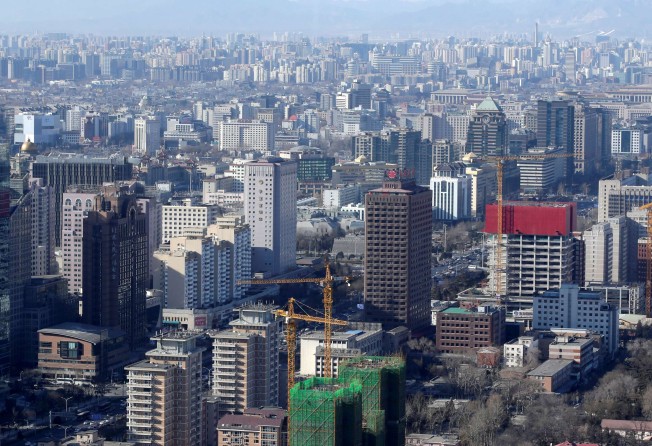Guangzhou, four cities follow Beijing’s lead to curb home purchases
A total of 18 municipal governments have rolled out cooling measures in March, including all major mainland China cities.

Five mainland Chinese cities have followed Beijing’s lead in tightening home purchase restrictions, rolling out extensive new measures over the past three days to curb speculative buying.
Within a few hours of Beijing introducing the nation’s harshest curbs on Friday afternoon to dampen surging home prices, Shijiazhuang, the capital of neighbouring Hebei province, the city of Guangzhou in southern China, and Zhengzhou, the capital of central Henan province, rolled out tighter buying curbs.
Over the weekend, Hunan’s capital of Changsha and Baoding, a city 150 kilometres southwest of Beijing, both imposed stricter cooling measures, bringing the total number of mainland cities that have introduced such measures in March to 18. These include all the major cities in China and smaller cities surrounding Beijing and Shanghai.
An analysis of the policy details put forward by each city indicates that they aim to stamp out speculative demand that was blamed for the latest surge in home prices, with speculators taking advantage of loopholes in property curbs that have been put in place since October.
For example, many cities limited local residents to owning two or three homes while non locals could only buy one. The number of years non local residents had to pay into the social security fund to gain purchase eligibility was also raised, while the urban areas subject to purchase restrictions were expanded. In addition, local governments increased the down payment ratio requirement.
However, these policies seem mild compared with those imposed in Beijing on Friday. Down payments for second-time buyers of private sector-developed homes were raised to at least 80 per cent of the purchase price, up from 70 per cent, and the definition of “second-time buyer” was broadened to include those who have any mortgage history, regardless of where or whether they currently own a flat.
Analysts said the stricter definition of “first-time buyers” implemented by some cities was targeted at those who sold their existing home and couples who divorced in order to acquire “first-time” status. So far only Beijing, Shanghai, Shenzhen and Nanjing have imposed such draconian rules.
“The tougher definition of ‘first-time buyers’ will significantly raise the home purchase threshold and tame speculative demand for the moment but it also hurts the non-speculative trade-up demand – people who are just seeking a larger home for their kids,” said Zhang Hongwei, a research director at Tospur Real Estate Consulting Co.
Hu Jinghui, vice president of consultancy Bacic & 5i5j, said the further tightening would see buyers with less urgency or those in a weaker financial situation delay their purchases, driving down transaction volumes. Hu added that the new policies were necessary to calm the jittery mood in the market and slow the price upsurge.
The urgent need for greater home market control was evident in the February price data released by the National Bureau of Statistics. Despite a 0.1 per cent month-on-month decline in Beijing’s new home prices, price growth for pre-owned homes, which make up over 80 per cent of the capital city’s transactions, accelerated to 1.3 per cent in February from 0.8 per cent in January, following a 0.2 per cent gain in December. Pre-owned home prices in Guangzhou leapt 2.7 per cent month on month in February.
He Lifeng, the newly appointed head of the National Development and Reform Commission – mainland China’s top economic planner – lashed out at the “large capital influx into the property sector” at a weekend conference, saying it was at the expense of the real economy. He vowed to control the excessive credit flow into the property industry.
Still, there are critics of the latest round of cooling measures. Yi Xianrong, a finance professor with Qingdao University, said most second-tier cities still allow non local residents to buy one home, which in effect encourages them to do so. The eligibility restriction also prompts locals, who otherwise may not have purchasing intent, to buy more than one home.
He said the most powerful tool to deter speculative buying – property taxes – remains elusive despite years of debate due to powerful vested interests. A spokeswoman for the National People’s Congress said earlier this month that a proposed property tax law would not be on the agenda for this year’s legislature.